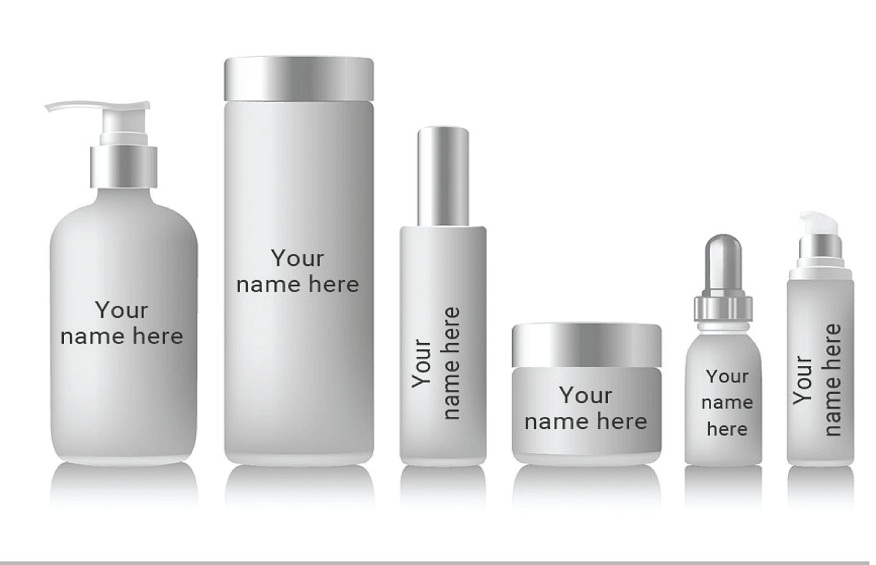Cosmetics private labels are constantly looking for new ways to differentiate their products in a crowded market. High-quality, bespoke lubricant labels printed with important elements that complement their company image and values are one-way private labels that can stand out. It will go over some crucial label printing issues for cosmetics private label.
Graphic Design for Labels
A product’s label design is frequently the first impression a client has of it. Private labels should collaborate closely with lubricant label makers to create labels with eye-catching images and designs that complement their brand identity. Labels can include brilliant colors, artistic images, and unique typography. Customers can also be educated by using photos or drawings of how to use the product. The design should be legible and visible on store shelves. Before finalizing, it’s a good idea to conduct customer testing of various label designs to discover which ones resonate the most.
Directions and Ingredients
To meet regulatory standards, labels must clearly state all product ingredients. This information should be shown prominently and in an easy-to-read format. Private labels may seek to emphasize key active substances that have been shown to benefit customers. Instructions for proper use should also be clear and simple to understand. For persons with limited literacy, illustrations can enhance written instructions. Labels printed in different languages can help a brand reach a broader audience.
Characteristics of Sustainability
Consumers today are more concerned about ecologically responsible brands. On their labels, private labels might promote sustainable features like using recycled paper, soy inks, or being plastic-free. Credibility can be increased by using words like “eco-friendly” or icons for recycled content. Manufacturers who specialize in lubricant label printing with environmentally friendly materials and procedures enable private labels to promote their green credentials.
Options for Customization
Because private labels have specific requirements, it is critical to find a manufacturer who is willing to customize labels. Variable data printing, for example, allows you to personalize each label with use-by dates, lot codes, or other variable information. Custom forms other than rectangles broaden creative options. Labels with embossing, foiling, die-cutting, and other special features can be tactile and sumptuous. Manufacturers should be able to keep various private label trademark designs on hand and make quick changes as needed.
Integration of Packaging
Integrating the label with the packaging design visually connects the entire product. Labels can be designed to wrap around containers, feature die-cuts for easier opening, or have long text panels. Labels stand out against the packaging thanks to spot UV treatments, foil stamping, and other embellishments. Manufacturers who can print labels, boxes, and other components help private labels achieve their goals. It is also critical for a polished appearance to ensure that labels adhere effectively throughout the product’s lifetime.
Compliance with Regulations
All label information and claims must adhere to applicable cosmetics, ingredients, and other standards. Manufacturers who are familiar with these rules can advise private labels on requirements and assist them in obtaining appropriate approvals and certifications. Ingredient disclosures, recycling symbols, and allergen labeling relevant to each country should all be addressed. Making sure labels are compliant helps to avoid problems later on.
Testing and Certification
Private labels must thoroughly test-proof samples of their lubricant labels before final manufacture. This aids in the detection of flaws, checks that all information and visuals are appropriately printed, and ensures that labels function as intended. When compared to outsourcing tests, manufacturers with in-house testing capability save time. They should also be able to steer private brands through retailer and other partner approval processes. Only distributing labels that pass all checks aids in the protection of the brand’s reputation.
Features for Security and Authentication
Private labels for high-value products may desire labels with security features to prevent counterfeiting. Invisible printing, which is only visible under UV or infrared light, is one option. During the lubricant label printing process, holographic foils, micro text, serial numbers, and encrypted barcodes can be applied. Manufacturers who are well-versed in complex authentication technologies assist brands in protecting their reputations.
Putting New Label Materials and Applications to the Test
Forward-thinking Private labels research new label materials on a regular basis, such as bioplastics and edible and dissolvable kinds. They experiment with novel applications such as interactive QR codes that link to digital material. Working with a manufacturer who is willing to test new labeling methods allows brands to stay on the cutting edge. Clients are best served by manufacturers with R&D capabilities focused on sustainable solutions and the future of packaging.
Management of Costs
Private labels have limited budgets, so finding a lubricants label printer that offers competitive prices and is upfront about expenses is critical. Options such as bringing together key design components across product lines, reducing personalization, and ordering significant label information all help to lower unit prices. Negotiating volume savings in advance encourages continuous collaboration. On-time delivery is also essential for reducing inventory and production expenses.
Relationship and Help
Long-term partnerships with private labels are formed by the best lubricants label manufacturers, who provide ongoing support throughout the product development cycle. They are aware of each brand’s vision and objectives. Manufacturers who can respond swiftly to demands with short lead periods provide flexibility. A single point of contact for ordering, art approvals, and issue resolution is advantageous for private labels. Partners that invest in the relationship by communicating and collaborating on a regular basis achieve the best results.
International Logistics and Shipping
Finding a lubricant label printer with international manufacturing capabilities and shipping infrastructure is critical for private labels looking to expand globally. At global operations, they must be able to store several label designs and generate different product lines. Creating global supply chains necessitates managing complex import/export regulations, tariffs, and documentation. Manufacturers who understand the particular logistics of different locations might assist private labels in succeeding in new markets. Partnerships with consolidated freight companies make global distribution even easier.
Conclusion
To summarize, it is critical for long-term success to carefully pick label printing partners and how labels can best represent cosmetics private brands. The best lubricant label manufacturer will work with you to ensure regulatory compliance while bringing your creative ideas to reality. Private brands benefit from those who focus on sustainability, personalization, and innovative technologies. Most significantly, partnering with a labeling solutions supplier who is committed to active collaboration enables companies to offer polished, on-brand products that appeal to today’s sophisticated consumers worldwide.

